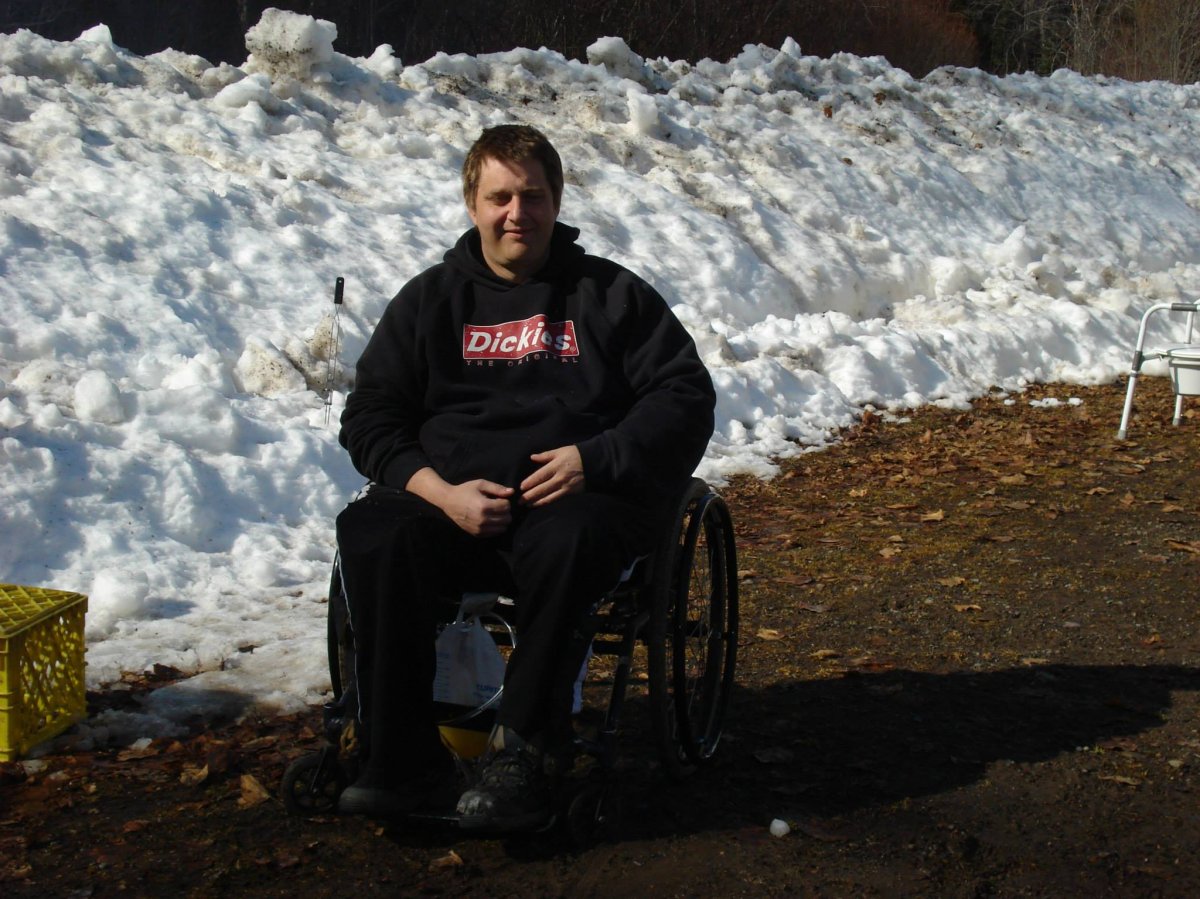The town of Burns Lake is rallying around Brian Hanson, a paraplegic who suddenly lost his wife and primary caregiver of 20 years earlier this month.

“Everyone has been wonderful. It’s moments like these that restore your faith in humanity. It’s so nice to see that everyone loves them as much as we do,” says Megan Stratikopoulos, Brian’s niece.
Shelley Hanson passed away when the two of them were on a snowmobiling trip in Terrace on May 3. A diabetic who had always taken insulin and had never shown any signs of poor health, her liver suddenly failed her.
Brian and his family have lived in Burns Lake, which has a population of just over 2,000, for decades. They’re learning the complexities of the disability system in rural B.C., trying to make the finances work – and trying to let Brian stay in the town he loves.
They’ve set up a fundraising page to help with the immediate costs of caring for Brian and making mortgage payments while they come up with a longer-term plan. They’ve already received over $5,000 from members of the Burns Lake community.
“I wouldn’t go anywhere else,” says Brian.
“It’s home, that’s where my family and friends are. This is always where me and Shelley wanted to be.”
“I know the shops, I know the people. I’m an outdoorsy person, and Burns Lake allows me to do the snowmobiling ride. It’s definitely home for me.”
But the financial and logistical challenges are daunting.
First, there’s the issue of getting around town. With no real public transit, a specialized van is needed. There’s also daily bandages that need to be applied if he wants to leave the house, and upgrades that need to be done on the property.
While downgrading his home would seem like the sensible option, they say finding someone to buy a extensively customized house in rural B.C. is easier said than done.
“We bought the place as a fixer-upper, which never works out,” he says with a laugh.
“We’ve been slowly picking away. Because I relied on her so much, there’s a lot that needs changing.”
The cost of changes add up. Mortgage payments. A new home nurse. Travel costs to Kelowna, where he spends several weeks each year with surgeons.
Brian will collect on Shelley’s life insurance, and his family has started to apply for the various benefits available.
However, they know Brian will need more help in his first year on his own, and that it will take some time before he can consider entering the workforce again.
“It was difficult to go to the community to help, but we thought ‘oh my god, we can’t do this by myself’. We wouldn’t be asking for help unless we desperately needed it,” says Stratikopoulos.
“It’s daunting, and we don’t want to think it’s outrageous, but this is care for the rest of his life.”
The sheer number of things to worry about “has been a real eye opener for our family,” says Brian’s sister Donna Benson.
The lessons Brian’s family is learning aren’t unique. The provincial government recently held consultations across the province on issues affecting the disabled. Two things that came up repeatedly were the challenges for people living the north, and the difficulties in accessing all the resources available.
READ: The province’s Disability Consultation Report
“One idea heard loudly and clearly throughout the consultation was that people with disabilities need help navigating the system in order to better understand and access government supports and services,” read a summary of the report, which was based on interviews with over 1,000 British Columbians with disabilities.
The Ministry of Social Development and Social Innovation has announced the establishment of an Accessibility Secretariat by fall 2014, to make sure its existing programs are more efficiently accessed.
For his part, Brian is approaching the situation with the same attitude he’s always had: no complaints, and optimism for the future.
“Shelley’s goal was not to worry about the things you couldn’t control. Control what you can and it’ll work itself out,” he says.
“We’ve been through quite a bit. I know she wouldn’t want me to give up now.”





Comments